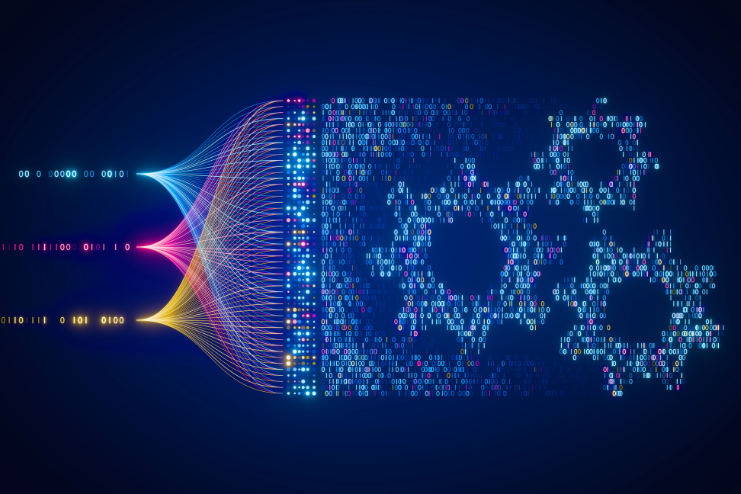The impact of Artificial Intelligence (AI) is positively impacting nearly every industry, including front-line industrial workers. What once seemed like a futuristic concept has become a tangible reality for the manufacturing sector.
AI has clear advantages in manufacturing, but it is also crucial to understand and address the challenges that can occur during implementation and use. Here, we dive into some common advantages and challenges of implementing AI in manufacturing:
Advantages of AI in Manufacturing:
- Enhanced Efficiency: AI algorithms can analyse historical production data to optimise manufacturing processes. By identifying patterns and trends, AI systems can adjust production schedules in real time to meet fluctuating demand or minimise idle time. Predictive maintenance algorithms can anticipate equipment failures before they occur, allowing for timely repairs and preventing costly downtime.
- Improved Quality Control: Traditional quality control methods often rely on manual inspection and outdated solutions, which are time-consuming and prone to errors. AI-powered computer vision systems, on the other hand, can detect defects with accuracy and speed. Whether identifying imperfections in product components or ensuring precise assembly, AI enhances quality control throughout the manufacturing process, ultimately reducing waste and rework.
- Cost Reduction: AI-driven optimisation extends beyond production processes to encompass supply chain management and resource allocation. Machine learning algorithms analyse vast datasets to forecast demand, optimise inventory levels, and streamline logistics, minimising storage costs and transportation expenses. Moreover, AI-enabled energy management systems can identify opportunities for energy conservation and cost savings by optimising equipment usage and monitoring energy consumption in real-time.
Although the benefits of AI in manufacturing can seem too good to be true, they are real. However, to fully benefit from AI, one must first overcome its challenges.
Challenges in AI Implementation:
- Data Security Concerns: With the increasing digitisation of manufacturing operations, safeguarding sensitive data from cyber threats has become a big concern. AI systems rely on vast amounts of data, including proprietary designs, production schedules, and customer information, making them targets for cyberattacks. Robust cybersecurity measures, including encryption, access controls, and intrusion detection systems, are essential to protect against data breaches and ensure the integrity of manufacturing processes.
- Skill Gap and Worker Displacement: Integrating AI technologies into manufacturing workflows inevitably reshapes the nature of work and necessitates new skill sets. While AI automates routine tasks, it also creates opportunities for human workers to focus on more complex and value-added activities, such as troubleshooting, optimisation, and innovation. However, this transition requires a concerted effort to up-skill and re-skill the workforce to equip them with the technical proficiency and adaptability required to thrive in a digital manufacturing environment.
- Initial Implementation Costs: While the long-term benefits of AI in manufacturing are compelling, the upfront costs associated with implementation can present a barrier to adoption. The initial capital outlay can be substantial, from acquiring AI-enabled hardware and software to investing in training and infrastructure upgrades. Manufacturers can start by implementing pilot projects. Pilot projects, which typically start with a proof-of-concept (POC), are small-scale controlled AI implementations that serve as testing grounds for various value-generating technologies. When assessing the viability, budget, risks, and employee engagement of solutions, it is recommended to use POCs to determine the potential return on investment and make an informed decision. A well-executed pilot launch plan is the cornerstone of your AI integration strategy. It helps you test the waters, identify challenges, and determine the best path forward.
As manufacturers embark on their AI journey, adopting a strategic approach that balances innovation with risk management and ethical considerations is essential. Collaboration between industry stakeholders and third-party organisations like Aicadium can foster knowledge sharing and drive collective action to address common challenges and accelerate AI adoption. By embracing a culture of continuous learning and responsible AI deployment, the manufacturing sector can harness the full potential of artificial intelligence to drive productivity, innovation, and sustainable growth in the digital age.





